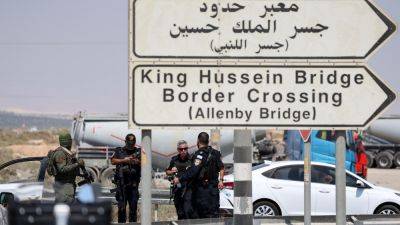Time to retire notion of an Arab-Israeli conflict
The current phase of fighting in the Middle East began almost a year ago, with the October 7, 2023, attack by Hamas and the subsequent pummeling of Gaza by Israel.
But to many academics, foreign policy experts and international observers, what is taking place is also the latest episode in the decadeslong conflict commonly referred to as the “Arab-Israeli conflict.”
The experience of the past 11 months has led many experts on the region, like myself, to reassess that term. Is “Arab-Israeli conflict” an accurate reflection, given that the active participants are no longer just Arabs and Israelis?
Should we retire that term for good now that the conflict has widened, drawing in the United States and Iran – and potentially Turkey and others in the coming years?
How it all began
The Arab-Israeli conflict began after the collapse of the Ottoman Empire in 1922. In what is now Israel and the occupied Palestinian territories, but was then the Palestine mandate under British rule, sporadic disputes over land ownership led to violence between the Jewish and Palestinian Arab communities.
When Israel declared independence in 1948, the conflict expanded into an interstate war between Israel and several Arab countries – Egypt, Jordan, Iraq, Lebanon and Syria. Hence it was named the Arab-Israeli War by both the media and political leaders at the time.
This name remained accurate for several decades as the conflict remained geopolitically and geographically confined to the Arab countries and Israel.
After the initial 1948 war, the unresolved conflict resulted in several other wars between Israel and Arab countries. Some oil-exporting Arab countries, such as Saudi Arabia and Kuwait, also became indirectly involved by providing financial







